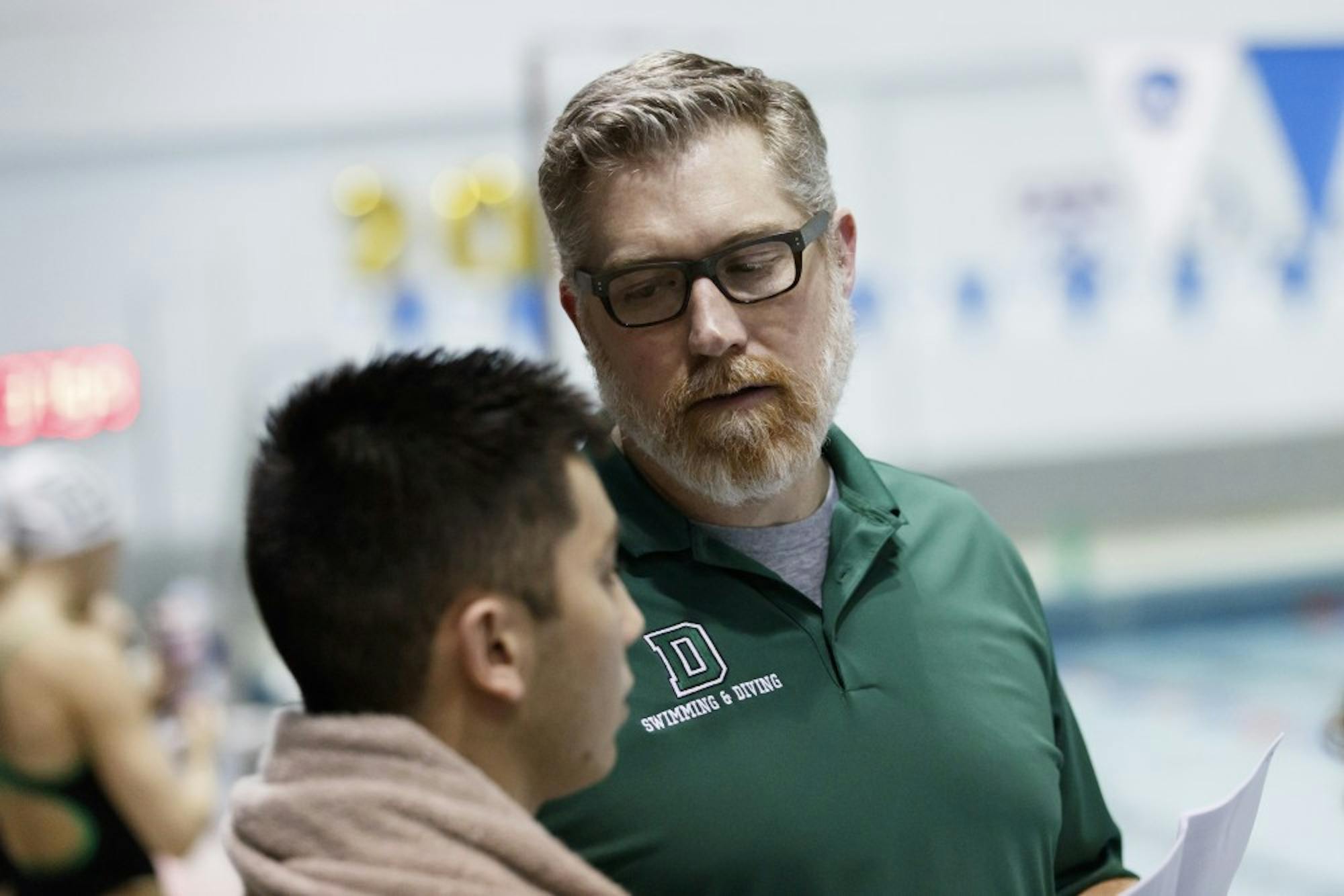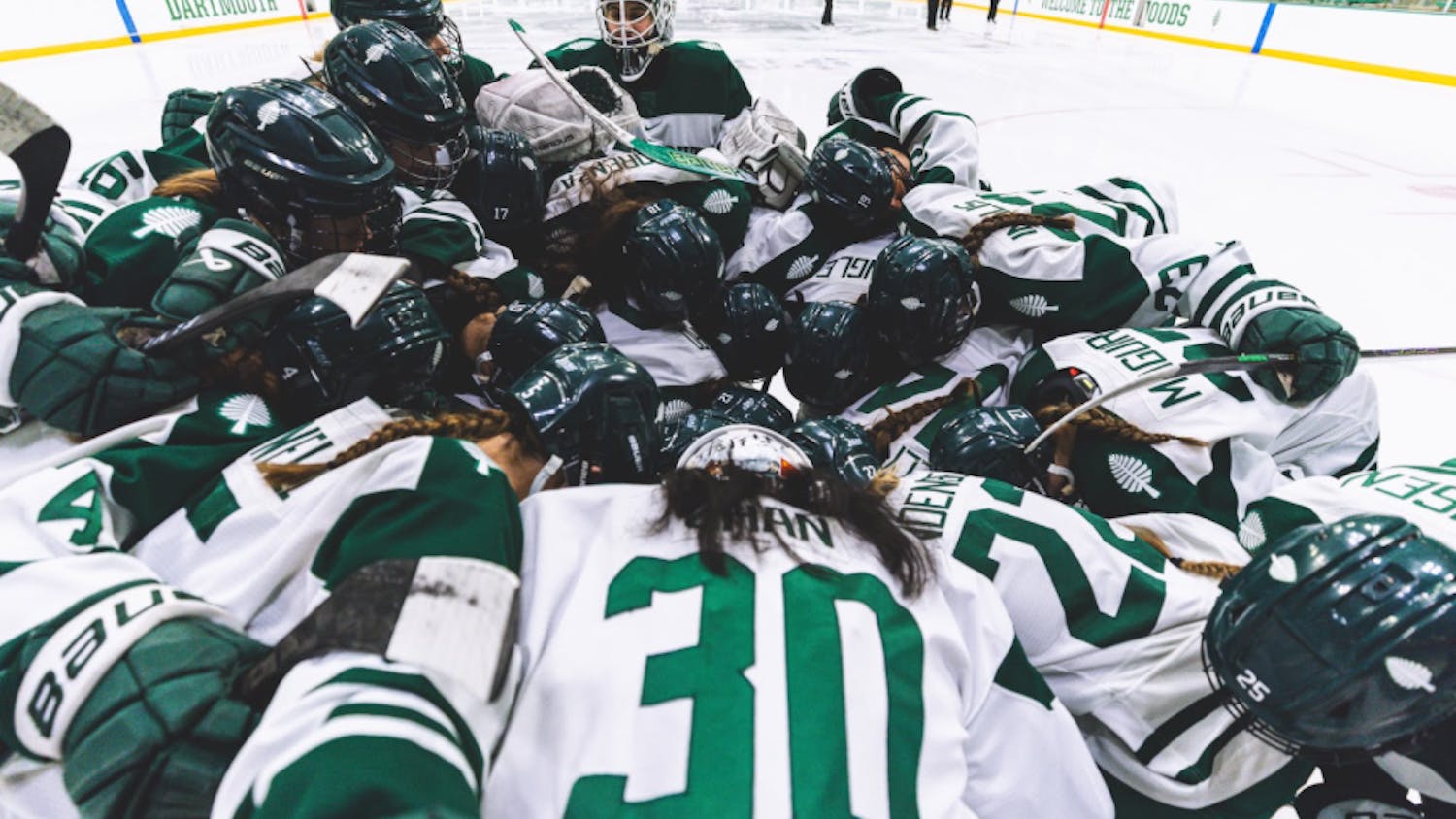As soon as the last hand hit the pool wall on Feb. 1 to end their regular season, all members of the Dartmouth swimming and diving team immediately turned their attention to the real challenge: the Ivy League Championship. After a successful season for both teams, including the women’s first .500 season since 2013-14, expectations are high as the women head to Princeton on Feb. 20 and the men head to Brown on Feb. 27. In his third year as the head coach of the swimming and diving team, James Holder expects school records and top finishes from his swimmers. The Dartmouth sat down with Holder to discuss the team’s preparations for Ivies and the season so far.
How has the team’s performance thus far in the season compared to your expectations from the beginning of the season?
JH: I would say thus far, really well. We’ve got a lot of young talent. Some people have performed at a level that I had expected, and some people have overperformed, which has been really nice. I don’t think anyone has really underperformed, you know. I’m really pleased with the progress we’ve made this season, but not only that. This is only my third season, and we’ve definitely made progress throughout the last three seasons, and the best is yet to come with Ivy Championships next week for the women and in two weeks for the men. Our sport is weird in that obviously we compete throughout the year, but we are really looking to perform at our best at the end of the season. It’s not necessarily a game sport where your performance adds up to a lot of the games you have in the season. Obviously, you want to do well on dual meets, but swimming is a sport where the end of the season is a much bigger deal.
How has the team been preparing for the Ivy Championships?
JH: Like I said, it’s been kind of a year-long preparation. We started working in September to really be performing at our best at the end of the year. The team has been working really hard in and out of the pool with a lot of the training we have done. This next week or two they’re really tapering off of what they’ve done in order to really rest their bodies and have them perform at their best. I would say that in practice we’re doing a little more practice racing and giving them more rest.
How often does the team practice in general and then leading up to Ivies?
JH: On a typical week, we have 10 training sessions. That’s double workouts on Monday, Tuesday, Thursday and Friday, with one workout on Wednesdays and Saturdays. Leading up to Ivies we’ll cut that back to more like six or seven practices, and at each practice there will also be less yardage and there will be a shift in intensity.
What do you think have been some of the strengths and weaknesses for the men’s team this season?
JH: For the men, our strengths have been in the IM and butterfly, and the 500 and 200 on down. We’ve had a couple of key injuries that have hurt us, and one of our best distance swimmers — for lack of a better way to put it — he got himself cut from the team (laughs). But we have a lot of breastrokers on the team, especially in the freshman class on the men’s side, and I’m excited to see how they perform at the end of the year. I think our sprinters should do pretty well too.
What have the strengths and weaknesses been for the women?
JH: On the women’s side, our strengths have been in the 500 on down. We have a strong freshman distance swimmer, who has been performing over expectations this year, and that’s Sarah Minnigh ’22. The other strengths I would say are 200 free, 100 free, 50 free, and we’re going have some pretty solid relays on the women’s side that’ll be better than last year. I would say some areas we don’t really have any depth are in the 400 IM. Melanya Zaraska ’19 is a strong 400 IM’er, but she’s really our only 400 IM’er right now. Backstroke is an area where I’m expecting people to step up on both teams as well.
Last season, seven Dartmouth records were broken at the Ivies meet. Do you expect similar performances during the meet this year?
JH: It was actually nine records broken throughout the year, but seven were at Ivies. I’m excited for both teams to perform well, and I think we have some talented swimmers that are going to be able to break some records. I’m expecting some relay records on the women’s side to go down. I’m thinking the 800 free record is a possibility, and really all the free relays and potentially the medley. It all depends on how we perform. Mia Leko ’22 has already broken a record in the 200 fly this year. I expect her to go faster than she did in the mid-season meet, so she could definitely break the record in the 500, the 200 free and the 200 fly. We have returners who broke records last year, so ideally the goal is for everyone to go faster. Ashley Post ’22 is also our fastest swimmer in the 200 free from this year, so she could break the record for the 200 free as well. Potentially the 100 free as well, so it could be a very exciting meet for all of us.
You swam at Princeton and graduated from there in 2000. How does it feel to be returning to that pool for the Women’s Ivy Championship next week?
JH: It’s great. You know, Princeton will always hold a special place in my heart and I think their pool is great. They’ve got an awesome facility to host our championship, and it’s a really good place for us to race. Obviously, I know that place and I’m comfortable there, but it’s my job to try to beat them. We’re a few years away from that, I think, but we’re certainly making progress and I’m excited about competing against them and every other team in the league.
This is your third season coaching here at Dartmouth. How do you think that the team has changed since you began coaching?
JH: I just think that there is just a greater level of overall commitment to what we want to achieve as a team. I think we have a much more positive culture than when I — you know, I’m trying not to get myself in trouble here with the other classes I’ve had — but I mean, for lack of a better way to say it, I don’t think we were as positive as we are now, and now we have greater confidence in our ability. There was a time when our team didn’t care about being as competitive as they do now, and I think they recognize now that working hard and positivity and believing in yourself can lead to good things. So, I don’t know, to me that feels like I’m going to get in trouble for that (laughs), but now I just think that we’re overall a more competitive, positive environment to be in.
What is your favorite moment from the season so far?
JH: Without a doubt it was the Cornell meet with the women. It was a super exciting meet. We went in thinking we could win that meet. We knew it was going to be a tough meet, and we knew it was going to be tough competition, and it was just all out a team effort. And even though it was the women who won, the men were all there supporting them, and the men swam well in their own meet. It was definitely exciting, and it came down to the last relay. Well, really it came down to the last swimmer. We were losing going into that last leg, and it was just a really special moment.




